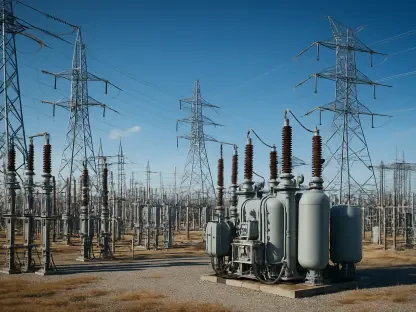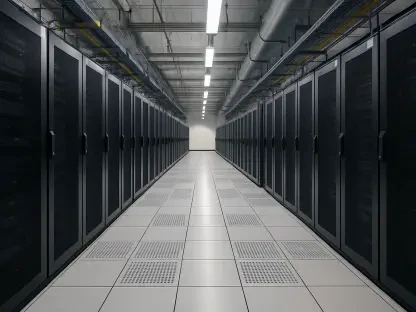The political climate surrounding energy production in the United States has reached a critical juncture, with a Republican-backed megabill sparking significant discussion about its potential impact on the burgeoning clean energy sector. During a session at the POLITICO Energy Summit, stakeholders from various sectors, including lawmakers, industry leaders, and former regulatory officials, convened to dissect the implications of this legislative proposal. This gathering underscored worries that, despite the GOP’s intention to bolster the nation’s energy supply to meet increasing demands from technological advancements, the provisions within the bill might inadvertently obstruct the growth of clean energy initiatives. The conundrum lies in balancing the aim of expanding energy capabilities while ensuring a sustainable and resilient future for the nation’s energy grid, especially with the rapid advancements in artificial intelligence and the expansion of data centers.
Legislative Challenges and Energy Goals
Central to the debate is the dissonance between the GOP’s declared ambitions to enhance energy security and production and the specific elements of their proposed legislation that might stymie progress in the renewable energy sector. The contradiction is evident as the megabill threatens to reverse incentives spearheaded by the Inflation Reduction Act of 2022, particularly tax credits supporting wind, solar, and other emerging renewable technologies. Discussions highlighted that while the proposed reconciliation bill endeavors to strengthen energy production, its current form could undermine the momentum gained in transitioning to a cleaner energy matrix. Former Federal Energy Regulatory Commission Chairs Neil Chatterjee and Willie Phillips emphasized the necessity of diversifying energy sources, advocating for a mix of renewables, geothermal, and nuclear energy alongside traditional fossil fuels to maintain competitiveness and reliability.
Additionally, the pro-fossil fuel faction within the GOP, led by influencers like Jarrod Agen of the National Energy Dominance Council, poses a significant challenge to the broader acceptance and implementation of renewables. Agen’s stance downplays wind and solar solutions due to their intermittency, calling instead for a focus on coal and fossil fuels, with nuclear power envisioned as the ideal long-term solution. His position delineates a clear divide within the party between traditional energy sectors and modern renewable initiatives. This schism complicates efforts to secure a cohesive strategy that ensures energy reliability while promoting environmental stewardship and innovation. The stakes are high, with a pressing need for policy alignment that acknowledges both the technological demands of the future and the imperatives of clean energy growth.
Industry Perspectives and Legislative Amendments
Amidst these debates, calls for legislative refinement have emerged, particularly from representatives like Curtis and Senator Martin Heinrich. Both advocated amending the bill’s provisions to ensure project stability and investment confidence by prioritizing construction timelines over electricity production start dates. This adjustment could mitigate uncertainties that currently deter investors, thus fostering a more favorable environment for renewable projects. The summit’s discourse underscores the importance of maintaining existing clean energy tax credits, which have significantly contributed to the sector’s growth under previous administrations. Sustaining these incentives is seen as crucial for continued advancement and diversification of the energy grid, supporting a future where renewable energy plays an integral role in meeting national and global demands.
Another focal point during the discussion was the perceived threat to the independence of the Federal Energy Regulatory Commission (FERC), a concern voiced by former Chair Chatterjee. He warned of potential politicization reducing FERC’s ability to function as an autonomous regulatory body, which could have broad implications for energy policy and regulation. This concern adds another layer of complexity to the ongoing debate, highlighting the critical need for regulatory bodies to operate free from political influence to effectively oversee and guide the nation’s energy landscape. Addressing such concerns is essential for ensuring that legislative efforts are informed by unbiased expertise and are responsive to the dynamic needs of the energy sector.
Party Dynamics and Future Considerations
At the heart of the GOP’s current discourse lies the conflict between its aims to boost energy security and production and the specifics of its new legislative proposal, which might impede renewable energy growth. This discrepancy is evident as the megabill could undo the incentives from the Inflation Reduction Act of 2022, specifically tax credits benefiting wind, solar, and other rising renewable technologies. While the proposed bill aims to bolster energy production, it risks obstructing the shift toward a cleaner energy infrastructure. Ex-Federal Energy Regulatory Commission Chairs Neil Chatterjee and Willie Phillips stress the importance of diversifying energy sources, advocating for a mix of renewables, geothermal, nuclear energy, and fossil fuels to ensure competitiveness and reliability. Furthermore, the pro-fossil fuel faction in the GOP, led by figures like Jarrod Agen from the National Energy Dominance Council, challenges the broader adoption of renewables by favoring coal and fossil fuels. This internal divide complicates efforts for a unified strategy balancing energy security and environmental responsibility.









